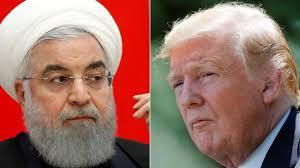Whatever the outcome, West Asia is likely to remain simmering for a long time to come with world’s logistics getting skewed
by Prasad Nallapati *
Prime Minister Benyamin Netanyahu landed himself in a very unenviable position. Domestic pressure is peaking to bring back the hostages, some 130 of them still in Hamas’ hands. Iran and its proxies igniting fires all around the Israeli periphery. International pressure is mounting to prevent war clouds spreading across the region.
The Israeli Defence Forces (IDF) have withdrawn much of their deployments from Gaza strip last week as they see no purpose of extending the operations there despite Netanyahu’s intent to march on Rafah, the last population centre in the south. Hamas remains unscathed.
Meanwhile, the West Bank has begun catching fire with increased reports of violence between Palestinians and Jewish settlers. With Gaza effectively blocked, the Hamas and other pro-Iran Islamist groups have opened another front through Jordan for supply of arms and men.
A peaceful resolution or a ceasefire appears to be more a mirage at this stage with the two key men, Netanyahu and Yahya Sinwar, Hamas military chief in Gaza, in no mood to give up yet.
Change in Israel’s Military Strategy
This is the context that Israel appears to have chosen to raise stakes and directly target Iran to lure it into the ring hoping for a fatal finish of its ever-growing threat, with a helping hand from the United States.
Two crucial Israeli airstrikes within a span of about a week marked a turning point in the current conflagration.
The April 1 strike on Iranian `consulate’ building in Syrian capital of Damascus killed a high-ranking Iranian commander, Gen. Mohammed Reza Zahedi, along with six of his associates. Israeli air force bombed a car in Gaza on April 10 killing all its occupants, three sons and three grandchildren of Ismail Haniyeh, head of the Hamas political wing.
The assassinated general had been a military target as he was said to be the conduit between Iran’s supreme leader, Ayatollah Khamenei, and Hassan Nasrallah, Secretary General of the Hezbollah, the pro-Iran militant organization of Lebanon. Israel has long been targeting senior Hezbollah targets but avoided Iranian generals, who were left to the US to do the short work.
Israel has justified the killing of the sons and grandchildren of Haniyeh saying that they were on their way to distribute money to militants at the time of the attack. Haniyeh has been the face of the Hamas in the negotiations for a ceasefire. Despite the personal tragedy, he declared with an emotionless face that there would be no change in their ceasefire proposals.
Israel’s influential daily `Ha’aretz’, however, reported that their targeting was a low-level decision by a colonel without prior approval of the chain of command. This highlights the breaking discipline of war-weary senior `reserve’ staff officers, it added.
Iran’s Retaliation – First Direct Attack on Israel but below the Threshold
Israel crossed the “Red Line” from Iran’s point of view and thus called for an appropriate retaliation. More than 300 projectiles were launched at Israel, comprising 170 drones, 30 cruise missiles and 120 ballistic missiles from all four directions. The massive April 14 attack came not just from Iran, but also from its proxies – the Hezbollah in Lebanon, and Shia militia groups based in Iraq.
But the damage was miniscule – a small crater on the runway of an air base and a Bedouin baby in a migrant camp.
How come they are so ineffective?
The US and Israeli military forces claimed that their three-level air defence systems have effectively neutralized 99% of these airborne systems. Support of some Arab allies of the US, as part of the newly launched Middle East Air Defense Alliance, was said to have proven critical in defending Israel. The UK, France and Jordan are other members of the five-nation alliance.
Western reports claimed that Jordan has shot down the missiles flying over its air space while Saudi Arabia hosts US air defense systems and allowed them to intercept the missiles heading toward Israel. Both countries, however, deny any of their role in defending Israel. Some experts claim such western narratives of Arab-Israeli alliance against Iran are misleading.
Iran itself may not have intended it to be a lethal attack which would have set the region ablaze. A visual of hundreds of slow-moving drones heading toward Israel look more like an Olympic Games opening ceremony. Tehran also claimed to have given a 72-hour advance notice to Arab neighbours of the impending attacks.
It has always responded to such attacks with a more theatrical retaliation apparently for domestic consumption. The killing of its top IRGC Commander, Gen. Qasem Soleimani, in a US aerial attack in Baghdad in 2020, was responded to by missile attacks on American military bases in Iraq after giving their forces sufficient time to vacate them.
Iran may be incapable of any effective retaliation and just want to play to the domestic gallery to preserve Mullah control. Or it may have larger designs of deception to hide its current meagre capabilities until it attains full capacity to challenge its rivals.
Both observations may have some truth.
Iran’s Growing Military Capabilities
Iran is slowly but steadily expanding its military arsenal despite decades of crushing US sanctions. It’s cheaper models of drones and missiles of all ranges have proven their prowess in conflict zones across the globe, be it Russian war against Ukraine, Armenia’s battle with Azerbaijan or Sudan’s civil war. They are the choicest weapon of Houthis in disrupting Red Sea maritime transport, while the Hezbollah and Hamas keeping Israel’s air defenses busy.
Tehran has long demonstrated its ability to disrupt shipping through the Strait of Hormuz seizing vessels owned or operated by the US and Israel. The container ship MSC Aries, owned by the Zodiac Group of Israeli billionaire Eyal Ofer, was seized on April 13.
Israel has thus been effectively encircled by Iran’s proxies, the latest being Jordanian front which has lately seen massive pro-Palestinian demonstrations in support of the Hamas. Nearly a fourth of the Jordanian population is Palestinian. There are concerns over the role of Iran and Hamas in inciting the protests and expanding military operations into the West Bank.
Saudi Arabia sees such an Iranian foothold in Jordan a direct threat to its own security and hence coordinating with Jordan to thwart such attempts.
Iran’s nuclear program is a matter of serious concern for all regional countries particularly Israel and Saudi Arabia. After the US pulled out of the nuclear accord (JCPOA – Joint Comprehensive Plan of Action) in 2018, Iran felt no more obliged to observe any restraints and went ahead with enriching uranium to near weapon-grade.
Some American experts believe they have now enough supplies to build at least three bombs in a time frame ranging from a few days to few weeks. “The making of a crude nuclear device could follow in as little as six months after a decision is made, while overcoming the challenges of building a nuclear warhead deliverable by a missile would take longer, perhaps two years or more.”
Conclusions
There’s thus a common interest among Israel and regional Arab kingdoms to cooperate and thwart Iranian ambitions before they reach a state of a serious threat to them. Netanyahu may be seeing an opportunity to do a surgical strike on Iran’s installations to derail its nuclear and missile capability.
The US and its Arab allies, however, are cautioning him against any such misadventures that could put the world in danger.
Israel has decided to give a measured response to Iran’s massive missile attack, and it is to be seen whether it would be another low-threshold response to limit damage or a targeted strike against nuclear installations.
Whatever the outcome, West Asia is likely to remain simmering for a long time to come with world’s logistics getting skewed.
(* Prasad Nallapati is President of the Hyderabad-based think-tank, “Deccan Council for Strategic Studies,” and former Additional Secretary to the Govt of India)




